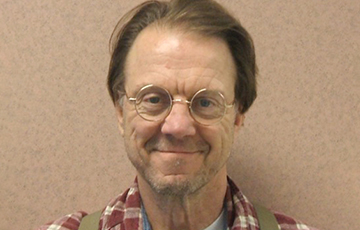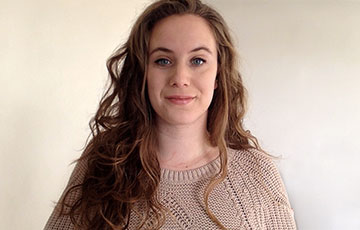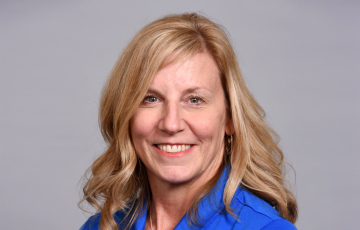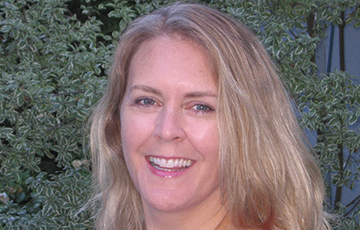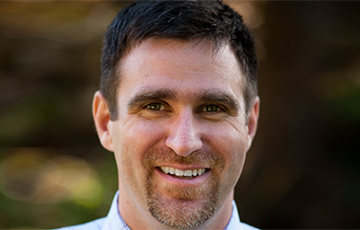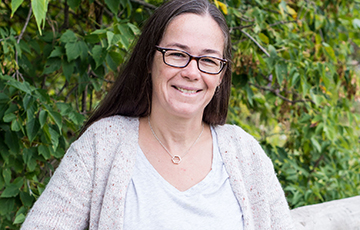- Home
- Sobre nós
- Internal Personnel Profiles
- Subhasish Purkayastha
The Power of Precision
Subhasish Purkayastha, Ph.D.
Babu is a natural born miracle maker. Using SCIEX platforms, his team develops lab solutions that make the unachievable achievable for diagnostic laboratories (while aiming to be the first to do it). Impressed? Read on to find out more.

"At SCIEX we are looking to create solutions which contribute to the well-being of people and improving the human condition. We are constantly looking to answer the question of how we can improve life and the diagnosis of health issues, while hoping to be the first to do it."
Overview
Subhasish Purkayastha is the Sr. Director, Diagnostics R&D and RUO Chemistry at SCIEX. His team is responsible for the development of lab solutions using SCIEX platforms. In his free time, Babu enjoys traveling to places with culture and history, golfing, watching movies, and reading.
How would you describe what you do at SCIEX to your family and friends?
"My team tries to identify the unmet needs in the diagnostic laboratory, and creates solutions to help the adoption of mass spectrometry for routine use. By leveraging novel and innovative chemistries and sample preparation methodologies optimized for mass spec workflows, we are providing our end users with the tools to develop their own assays previously unachievable with traditional techniques."
What excites you about your role at SCIEX?
"The innovation – at SCIEX we are looking to create solutions which contribute to the well-being of people and improving the human condition. We are constantly looking to answer the question of how we can improve life and the diagnosis of health issues, while hoping to be the first to do it. I am fortunate to be part of an organization that has some of the best minds in the world, and who have made tremendous contribution to the advancement of mass spectrometry and continue to do so every day. The opportunity to collaborate with these scientists and engineers to develop tools and technologies that contributes to improving human condition is something that makes me come to work every day."
What are some of the biggest game changers you see in the advancement of clinical diagnostics?
"We’ve seen advancements in molecular diagnostics and next gen sequencing. We’re seeing the utilization of big data and cloud based data analytics that clinicians can utilize at point of care. Mass spectrometry is a ground breaking analytical technology. It is able to do things that other technologies cannot. It can generate large amounts of multi-omics data and provide content. One of the challenges with mass spectrometry is that it is considered an advanced technology that requires a high level of expertise. As a developer and manufacturer of this technology, SCIEX has the responsibility of simplifying it for routine use. There is on-going research to provide medical technologists the powerful analytical capabilities of mass spec with simpler data interpretation and greater automation and providing researchers appropriate hardware and software tools to generate content."
How do you see mass spec technology advancing in the future?
"I think diagnostics, just like medicine, will become incredibly personalized. There are more technologies coming out every day that enable people to monitor their well-being and receive actionable information to help prevent certain health concerns. Mass spectrometry is a technology that enables you to measure accurately most types of molecules in your body. It has the ability to measure the change of any particular molecule, or a panel of molecules, or the interaction between molecules. It has the ability to generate and process incredible amounts of data in a short time. Because of the power of the technology, we are seeing the increased use of mass spectrometry in drug development and companion diagnostics, as well as an adoption in the clinical labs. One can see mass spec moving in a direction where people will be able to measure the relevant clinical markers indicative of their well-being, or the predictiveness of an issue on a routine basis in a more personalized manner. "
What have been some of your favorite projects to work on at SCIEX?
"I can name a few :
Developing and Launching ICAT in 2001 and iTRAQ in 2004. These were chemistries and MS based workflows that changed the way quantitative proteomics was being done, and paved the way for biomarker discovery. Some of these concepts are been extended to the analysis of small molecules and other different innovative ways.
The development of the Amplifex line of chemistries. These chemistries were designed specifically to improve signal strength, and enable assays where sensitivity was a challenge and difficult to perform, especially with the low and mid end MS platforms. Not having an equivalent to PCR currently, this is the closest one can think about in the protein and small molecule world.
Development of Vitamin D Class II kit. Technically this was not challenging, but the accomplishment was in the development of know-how and expertise in designing and developing a Class II kit, and getting it through the FDA approval process."
More From SCIEX Pioneers
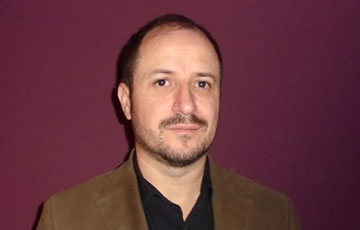
Antonio Serna-Sanz, Ph.D.
Software and Application Support Specialist for Proteomics, EMEA SCIEX
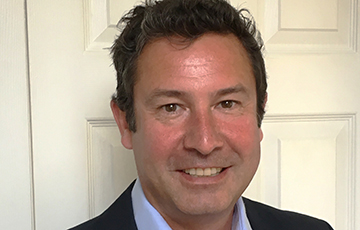
Ashley Sage, Ph.D.
Senior Manager for Global Portfolio & Technology Strategic Marketing, SCIEX


